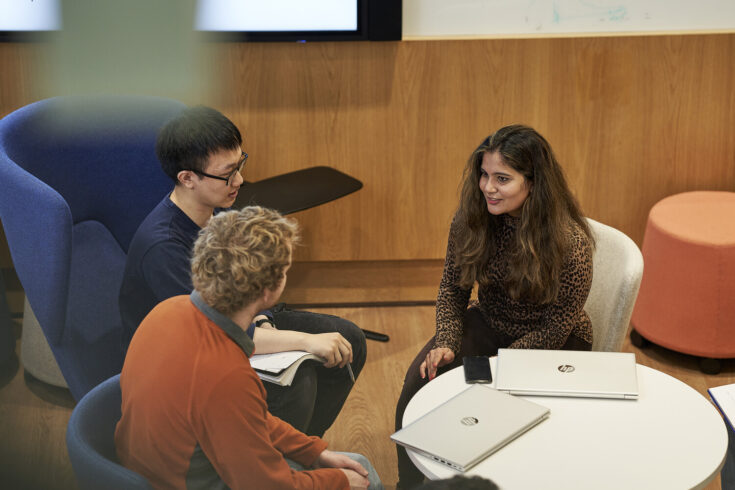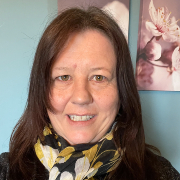Bioprocessing Entrepreneurial Skills Training
In September 2022, 19 early career researchers (ECRs) from across the UK arrived in the cathedral city of Durham to take part in the Bioprocessing Entrepreneurial Skills Training (BEST) programme.
Organised by the bioprocessing network BioProNET and Elements of Bioremediation, Biomanufacturing and Bioenergy (E3B) Metals in Biology, a Biotechnology and Biological Sciences Research Council-funded (BBSRC) Network in Biotechnology and Bioenergy, this six-day residential skills programme offered ECRs a unique opportunity to experience life in the bioprocessing industry.
A unique insight into industry
We designed the BEST programme to bridge the gap between academia and industry.
While many careers in industry are available to ECRs, often they don’t know what these roles involve, what skills are needed or indeed, what actually goes on in industry.
BEST brought together researchers with a shared interest in bioprocessing. That’s science that uses cells to make useful molecules such as therapeutic proteins, vaccines and diagnostics.
During the week-long training course, we planned a whole host of different activities for our ECR residents ranging from:
- personal development sessions
- talks
- visits to companies
- team-based workshops
Our aim for the programme was to give researchers a taste of industry and the processes involved in translating a medicine from research through to a marketed product.
This meant collaborating with experienced industry colleagues to ensure the programme was as realistic as possible.
The vaccine challenge
A central part of the week-long course was the ‘vaccine challenge’.
Here, our ECRs had to work in teams to create a theoretical start-up company charged with developing an RNA vaccine for use as a cancer therapy.
Our ECRs applied the knowledge they had gleaned from talks, training sessions and company visits throughout the week when setting up their companies.
They also had the chance to ask questions of experts they met and conduct their own research.
This culminated in a Dragons’ Den-type pitch to decide the best company at the end of the week-long programme.
BEST interactive sessions
During the training programme, ECRs benefitted from a series of interactive sessions that built their skills and knowledge in the following areas:
- my future plan – personality profiling and enabling confident career choices
- getting to know RNA vaccines – the processes involved in making RNA vaccines
- innovation in making RNA vaccines – fast vaccine manufacturing and related challenges
- responsible innovation – socially desirable and public interest-focused entrepreneurship
- healthcare economics – awareness about budgets for medicine development
- why does intellectual property matter?
Company visits
The programme included visits to three companies, each highlighting a different aspect of making a medicine:
- Fujifilm Diosynth Biotechnologies – participants toured the mammalian cell culture facility and learned about business acumen and strategy
- Centre for Process Innovation – a tour and talk covered making RNA vaccines, development platforms and analytics
- GlaxoSmithKline – a focus on fill–finish, the important but often overlooked process of putting vaccines into vials so they can be given to patients
The company visits also included ‘meet the experts’ sessions, where ECRs could ask questions of employees to help with the vaccine challenge.
Enter the dragons
The week cumulated in a Dragons’ Den-style pitch. Each member of the start-up company had to present part of the business pitch.
To determine the winning company, the Dragons (who were friendly but inquisitive) assessed each against the following criteria:
- the scientific quality of the idea behind the RNA vaccine
- how the company would be funded
- the work package that would see the vaccine move from bench to bedside
Looking to the future
Our 19 ECRs left Durham feeling tired after an intensive week of training.
But they also left with a far better understanding of industry research, new friends and colleagues and most importantly, enthusiasm about their future career choices.
Speaking about their experience of the BEST programme, one ECR said it offered ‘a fascinating intensive introduction into cutting edge biotechnology and entrepreneurship’.
Another commented that the course ‘encouraged me to think on how I can contribute to help bridge the gap between science and society’.
A third ECR emphasised that it was ‘amazing to see huge-scale automation’ in action.
Take part in the BEST programme
The BEST programme was organised by the bioprocessing network BioProNET and E3B Metals in Biology, a BBSRC-funded Network in Biotechnology and Bioenergy. The next residential programme is scheduled to take place in September 2023. For more information about the 2023 programme, please contact Joanne Flannelly via email at: joanne.flannelly@manchester.ac.uk




